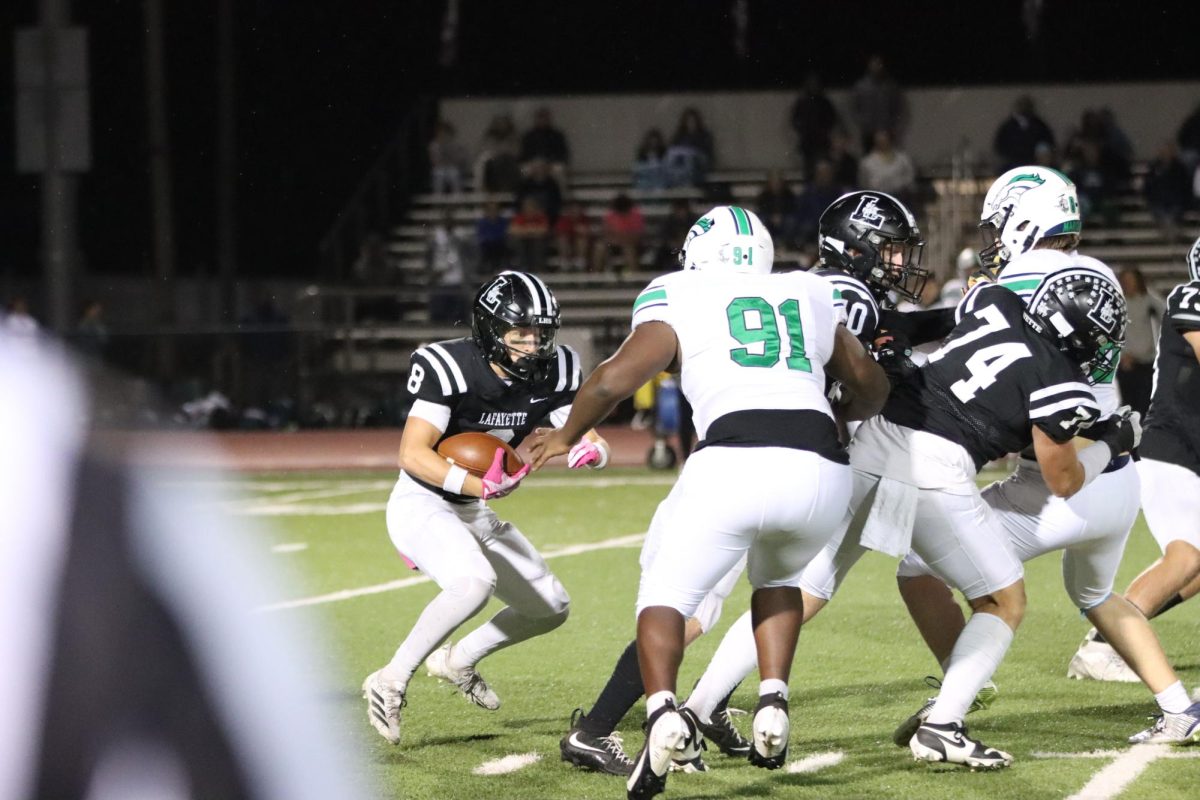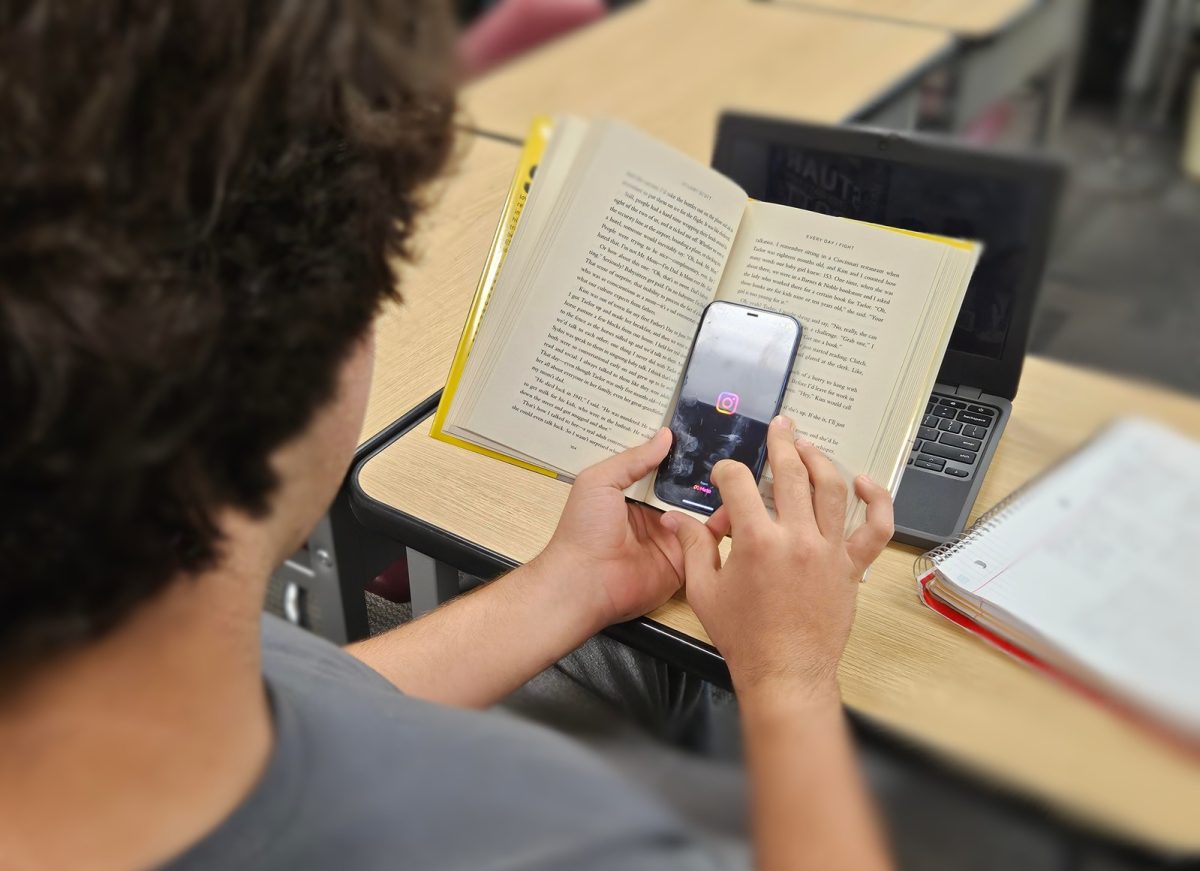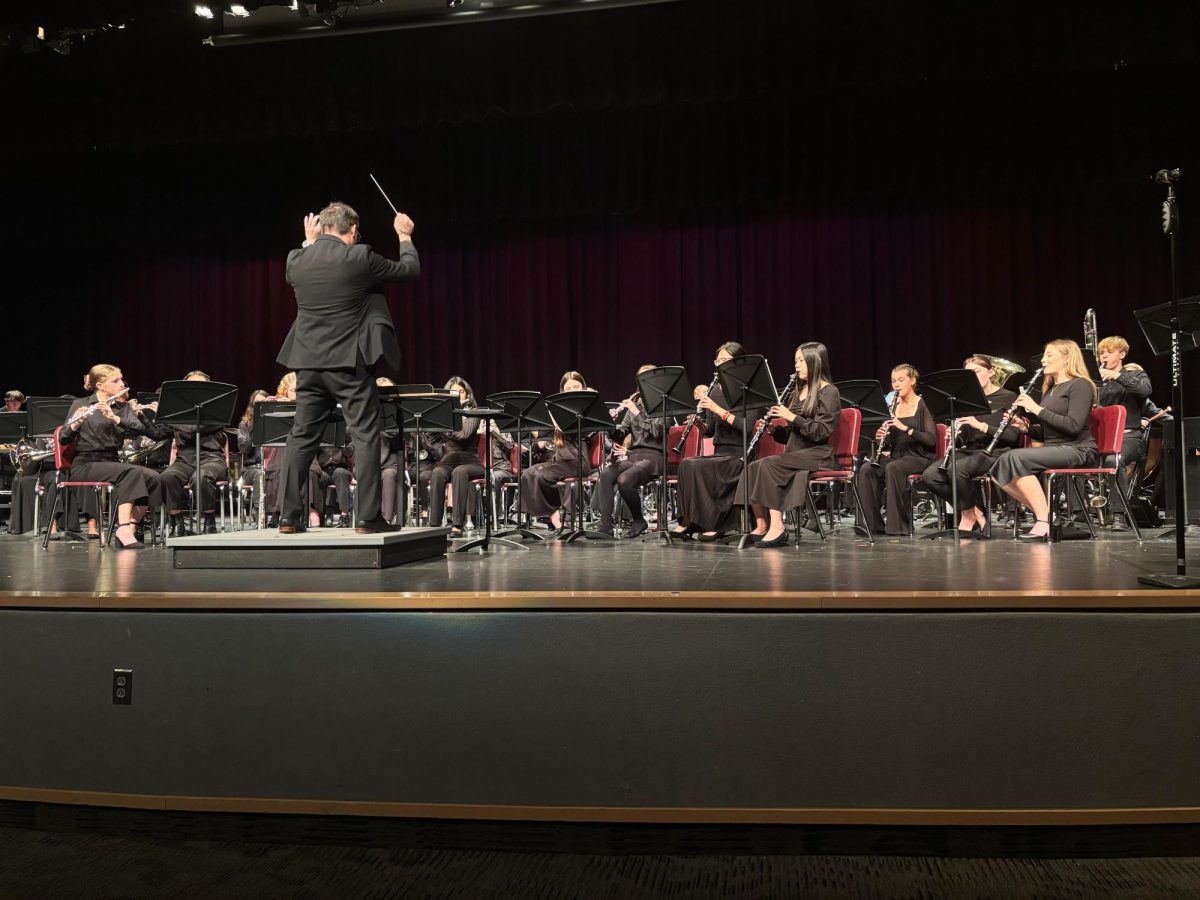For sophomore Caitlyn Witt, AP World History is her first ever AP class, and she’s both excited and nervous.
“It’s a huge test and I’ve never taken an AP class before, so it’s all new,” Witt said.
Last year, it was announced that there would be nine AP exams turning digital for the end of this school year, with an additional six following in 2026.
However, due to College Board’s concern with an increase in “compromised material” they have made security changes that will cause 28 AP classes to be entirely digital as of May, 2025.
Witt is looking forward to the writing portion being online, but prefers doing multiple choice tests on paper. She also said that she may be more hesitant to take an AP exam in the future if she doesn’t like taking them digitally.
“It really depends on the class, though,” she said.
College Board announced this change on their Instagram post over the summer, listing which exams will be fully digital and which will be hybrid.
For hybrid exams, students will answer the multiple choice portion and view prompts for the free-response portion online, however, answers to free response questions will continue to be handwritten.
Exams with audio portions or that require portfolio submissions will remain unchanged.
Test coordinator Jessica Brawner believes that this change is good for LHS.
Last year, LHS administered 1,376 exams.
“[Paper exams] take a lot of physical legwork and environmental resources,” Brawner said.
Following College Board’s decision to make their exams digital, Brawner said that that issue will be eliminated.
Along with that, Brawner said that it’ll also be easier to grade essays that were typed up rather than handwritten.
“Students are typically more comfortable with digital platforms and typing versus handwriting responses,” she said.
In addition, Brawner believes that it’ll be easier to read typed essays rather than handwritten, and digital exams will have a timing system built into them, which will eliminate the risk of human error when it comes to timing.
While this transition is rooted in concerns of academic dishonesty, Brawner said she’s never noticed large amounts of cheating at LHS specifically.
“All issues with exam security, including cheating, go through me,” Brawner said.
College Board also has rules for misconduct set into place. Before taking the test, all students are required to sign their test booklet, which states that they are aware of the security policies and will comply with them. If cheating is suspected, scores will be canceled and students may be prohibited from taking another AP exam in the future.
Along with that, all exams have certain procedures they follow when it comes to what items are permitted. For example, certain calculators are prohibited because they can connect to the internet and communicate with one another, which can cause security risks.
Now, with exams being digital, procedures will look a little different.
Exams will be administered through the Bluebook app and students must use their school issued Chromebooks. College Board also said that if the internet goes out, the testing program will still be able to run.
Brawner said that if technology doesn’t work, it will cause headaches, but she also said that that’s common with anything technological, so LHS has to plan and be prepared.
“In the big picture, while change can be scary, it’ll be fine. It always is,” she said.
Social studies teacher Steve Klawiter said that students felt fairly comfortable with taking the AP World exam online, and the overall feedback was that online testing went smoothly.
For last year’s AP World group, there was a significant jump in students who got fours and fives, but it’s hard to tell if the reason for that was because testing got moved to online, Klawiter said.
“We’re comparing different groups of students rather than tracking the same group from a pen-and-paper exam to an online test. It’s more likely the result of the College Board’s scoring cuts,” he said.































![This May, student's exams will shift away from the paper and focus on the computer. "Environmentally, the resources to create and ship paper exams is a lot, [and] that will now be eliminated," Test coordinator Jessica Brawner said.](https://lancerfeed.press/wp-content/uploads/2024/09/AP-Exams-Featured-photo-1200x800.jpg)





![In order to meet Federal Student Aid application deadlines, many local resources, including Lafayette counselors, are available for one-on-one meetings. "Even if you think your college is paid for, we still heavily recommend going ahead and filing the FAFSA so that you don't lose out on any opportunities," College and Career counselor Alex Dusenberry said. "A lot of four year universities say you can only get scholarships if you complete the FASFA. [Also], it is a requirement that you complete the FSA in order to get A+ credit."](https://lancerfeed.press/wp-content/uploads/2024/01/FAFSA-graphic-1.png)








